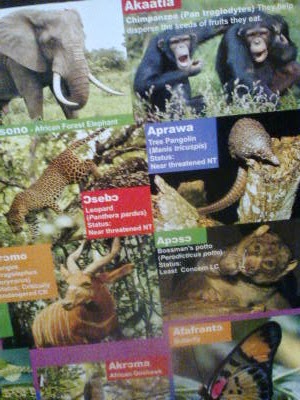UNESCO HOLDS CONFERENCE ON GREEN ECONOMY IN KUMASI
United Nations Education, Scientific and Cultural Organization, UNESCO in
partnership
with the Korean International Cooperation Agency, KOICA, is sponsoring a
three-year project code-named Green Economy in three selected biospheres at a cost of one point-two million
Dollars in three sub-Saharan countries.
The project, which started last year will end in 2016, aims
to engender a symbiotic relationship among residents of the fringed communities
of the selected biosphere reserves and the fauna in the reserves for the sake
of posterity.
As part of the project, the first Conference involving project
implementers from the three participating countries, representatives of the
UNESCO and the KOICA is underway in the Ashanti regional capital to review the
progress of the project so far and what needs to be done to make the entire
project very successful.
Speaking to Ashanti Today, the Head and Representative
of UNESCO in Accra, Tirso Dos Santos further explained that the Green Economy
project seeks ultimately to diversify local economies in and around biospheres
or forest reserves for the conservation of such facilities, contribute to
poverty reduction as well as ensure sustainable development in the beneficiary
countries.
In pursuant to these, objectives, Mr. Santos noted, that residents
of communities in the concerned biospheres are being trained in alternative
livelihoods to discourage them from destruction of the reserves since such
facilities are very important natural resources.
The UNESCO’s Accra
Representative noted that the security and livelihood of most Africans are
linked directly to biological resources leading to fast depletion of those
reserves.
In a presentation, the Coordinator of the Ghana implementation
Committee known as MAB, Mrs. Sheila Ashon said 232 out of 830 applicants from
the fringe communities of the Bia reserve have been selected to benefit from the
project package.
The number includes 40 percent women and that training
programmes in various economic activities such as snail rearing, mushroom and
palm oil production has started.
In addition, eight thousand juvenile snails, prawns of mushroom as well as pens for snail rearing have been supplied to the beneficiaries to set up alternative livelihood projects.
In addition, eight thousand juvenile snails, prawns of mushroom as well as pens for snail rearing have been supplied to the beneficiaries to set up alternative livelihood projects.
There were similar
presentations by the implementation committees from Nigeria and Tanzania.
The
participants of the Conference would visit the Bia biosphere in the Western
region to learn at first hand what is actually happening as part of the
conference.



Comments
Post a Comment